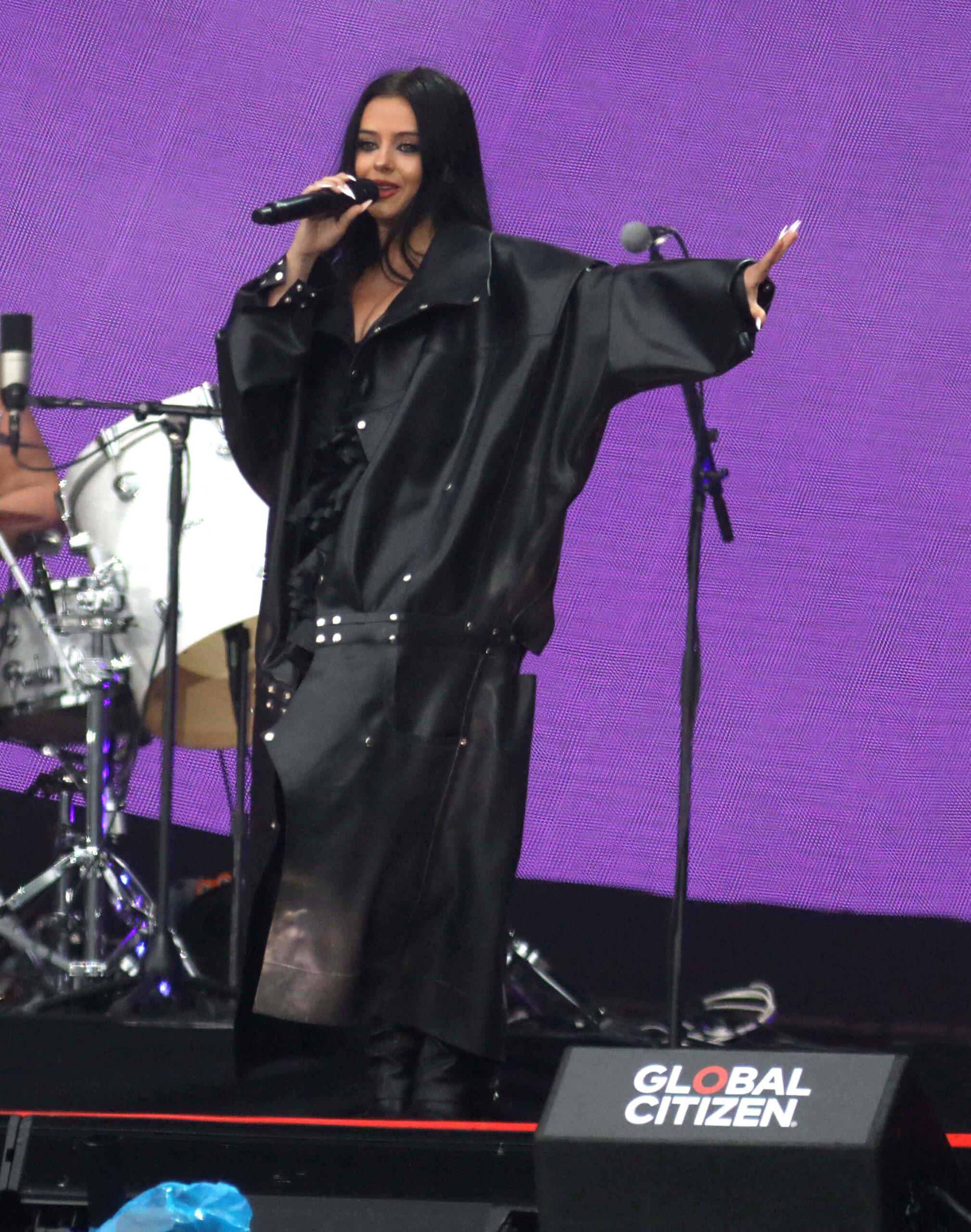Jessie Murph Sparks Backlash Over 'Tone-Deaf' Lyrics And 'Sexist' NSFW Video
By Kelly Coffey-Behrens on July 28, 2025 at 10:30 AM EDT

Rising country star Jessie Murph is no stranger to pushing boundaries, but her latest track may have gone too far for some fans and industry insiders.
The 20-year-old artist, who recently dropped her provocative new album "Sex Hysteria," is under fire after releasing the music video for her track 1965, which many are accusing of glorifying domestic violence and promoting outdated gender roles.
While the Alabama native has been lauded for her genre-blending sound and raw honesty, Jessie Murph's latest work has taken a controversial turn.
Jessie Murph Sparks Outrage With Controversial '1965' Lyrics

In "1965," Murph sings:
"We'd go to church on a Sunday, wake up on Monday / You'd go to work and I'd stay home and sing and do fun things / I might get a little slap-slap, but you wouldn't hit me on Snapchat."
She follows with the provocative hook:
"I think I'd give up a few rights, if you would just love me like it’s 1965."
The accompanying video adds fuel to the fire, featuring a graphic sex scene that has shocked many viewers, and even sparked a viral trend on TikTok where users film their stunned reactions. One particularly jarring scene shows a woman bound and lying face down on a couch, which many believe implies domestic violence.
Murph Accused Of Crossing The Line With Controversial New Track

Now, critics and fans alike are debating whether Murph’s latest release crosses the line.
One insider in Nashville told Daily Mail the uproar is part of a calculated move. "Controversy creates cash," they said, adding that it’s a" win" for her, "even if many find it to be grotesque."
Still, some in the industry believe Murph’s so-called edginess has taken a troubling turn, calling the track "sexist" and "tone-deaf."
Jessie Murph Defends '1965' As Satire Amid Kanye West Comparisons

Murph, however, insists the lyrics and video are meant to be satirical.
“That whole song is kind of a joke,” she told Teen Vogue in an interview, brushing off the criticism. Another country insider echoed her defense, calling the lyrics “very sophomoric” but ultimately “not to be taken seriously.”
Yet, comparisons to other controversy-courting artists, such as Kanye West, are beginning to surface.
“If she continues this and goes completely off the rails like Kanye, then people should have more conversations about the person she is rather than the artist she is,” the source added.
Murph Embraces The Backlash

The controversy surrounding “1965” comes just days after Jessie Murph opened up about her unapologetic approach to music and image.
“I’m glad that I make people have some sort of reaction. I’d rather them be like, ‘I hate you,’ or ‘I love you,’ rather than, ‘I feel indifferently,’ I guess,” Murph told Teen Vogue earlier this year.
That bold attitude appears to be fueling her current wave of provocative releases, including her latest album "Sex Hysteria," which has already stirred passionate reactions across the internet. Still, the singer admits navigating criticism isn’t always easy.
“But still, I just find it f-cking weird… I don’t have any hate in my heart,” she explained. “That’s been something that I’ve been trying to figure out. How to navigate and not react and get mad, because it totally makes me be like, ‘F-ck you, b-tch.’”
Jessie Murph Gets Personal On 'Sex Hysteria'

While Jessie Murph may be catching heat for her provocative imagery and unapologetic lyrics, "Sex Hysteria" isn’t all shock value. Beneath the controversy lies a deep well of personal grief and reflection, particularly on tracks like “Heroin” and “The Man That Came Back.”
In “Heroin,” Murph uses the drug as a haunting metaphor for returning to someone toxic, delivering gut-punch lines like:
“There's a violence in the way I long for you / And it's a war, the way you love me like you do.”
The vulnerability is raw, yet carefully constructed, steering clear of cliché and pushing listeners to feel the weight of her emotional war zone.
Jessie Murph Breaks Down The Song She Nearly Cut From ‘Sex Hysteria’

But perhaps the most devastating moment on the album is “The Man That Came Back,” a soul-baring country track written about her estranged father. Murph admitted she nearly pulled the song from the album entirely, despite penning it at 17. “I just don't want to hurt anybody,” she confessed.
After years of claiming to feel “nothing” about his absence, the truth began unraveling in conversations with her mother, especially once Murph learned more about what their relationship looked like behind closed doors.
“That made me so angry,” she revealed. “To see somebody I love talk about how they were treated... all those feelings kind of culminated and came out at once and I was like, ‘Oh sh-t. I guess I do feel some type of way about this.’”
"Sex Hysteria" is out now.